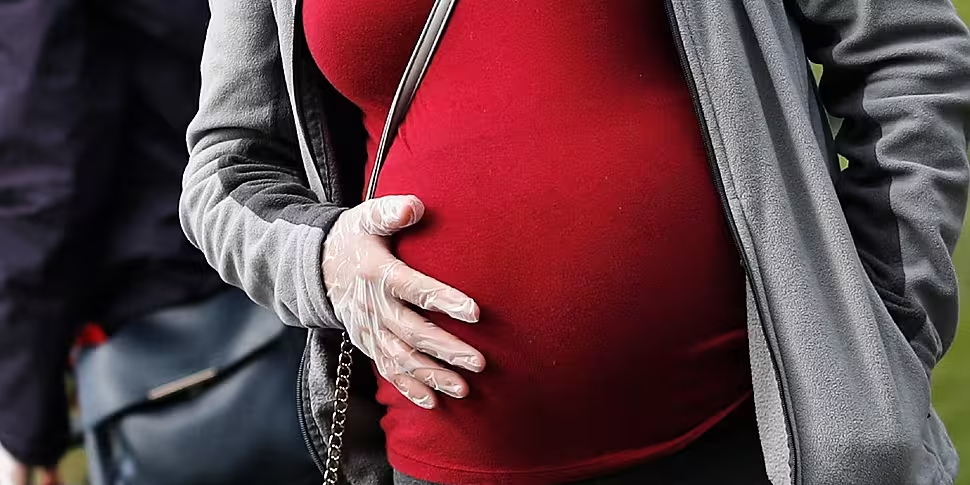A leading obstetrician is moving to reassure expectant mums about the safety of the COVID-19 vaccine.
She says it will ultimately be up to women to make a decision that's right for them.
It comes after the Government accepted NIAC's recommendation to prioritise pregnant women for vaccination.
It means women who are between 14 and 36-weeks’ gestation will be offered an mRNA vaccine (either the Pfizer or Moderna jabs) after consultation with their doctor.
Pregnant women were not involved in the original vaccine trials, but recent studies have shown the vaccines to be safe and effective in pregnant people.
Dr Maeve Eogan, Consultant Obstetrician and Gynaecologist at the Rotunda Hospital in Dublin, said the news that pregnant women will be vaccinated is "great progress".
She explained: “To reassure people: pregnant women are no more likely to contract COVID than someone who is not pregnant.
"What is different… a pregnant woman is more likely to end up in hospital with COVID, and unfortunately more likely to suffer consequences of COVID on her pregnancy.
“You’ll have seen media reports about an albeit rare but certainly present condition of COVID placentitis, which can lead to ill-health of the baby or indeed sadly to stillbirth.”
She stressed the risk of this condition remains very rare for pregnant women, but the key way to avoid it is to prevent the person from getting COVID.
She said cocooning is not practical for a huge number of pregnant people, so therefore vaccination is a valuable tool.
Dr Eogan said there will be some women who opt against vaccination given their personal circumstances.
She said: “It is a leap of faith - we absolutely understand that. Ultimately, the pregnant woman has to look at her own situation and scenario.
“This is about making the decision that’s right for them, with their circumstances.”
For those who do opt to get vaccinated, Dr Eogan said there's plenty of cause for reassurance even though the vaccines are still new.
She said: “All we can say is we don’t know the long-term effects of COVID on everyone - this is a new disease, and the data is coming all the time.
“The data is really, really reassuring for vaccination. The CDC… have a fantastic running total for vaccination… there doesn’t seem to be any untoward effect.
“The real-world experience of getting COVID in pregnancy is not reassuring… whereas the real-world experience of getting vaccinated in pregnancy is reassuring."
Vaccination underway
Dr Eogan said the practical details around vaccinating pregnant women are still being worked out, and the approach may differ from hospital to hospital.
She said it's likely to be a "blended approach" - meaning some will be vaccinated in maternity hospitals, some in mass vaccination centres and some in GP surgeries.
She explained: “For people with significant health effects who are also pregnant, we have been vaccinating them in the Rotunda.
"It would be great to be afforded the opportunity to vaccinate everyone there, but the practicality of that might be difficult - we’re a small campus.”
The advice from NIAC says women should be given their jab between 14 and 36-weeks gestation.
Dr Eogan said the first trimester of pregnancy can be an anxious time for expectant mothers - so 14 weeks means they'll have had the reassurance of a first major scan before being offered a vaccine.
People who are currently late in their pregnancy won’t get their second dose before the baby is born.
However, Dr Eogan said a first dose will still give them good protection from the virus, and they can then get their second jab after their child is born.
She also noted there doesn't seem to be any reason why a vaccine could be dangerous for a breastfeeding mother - noting that it may actually lead to some transfer of immunity to the baby.









